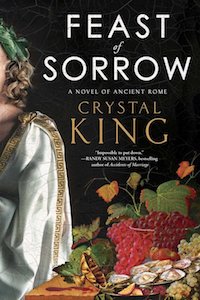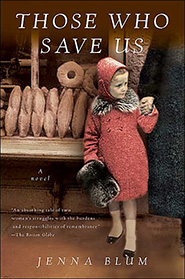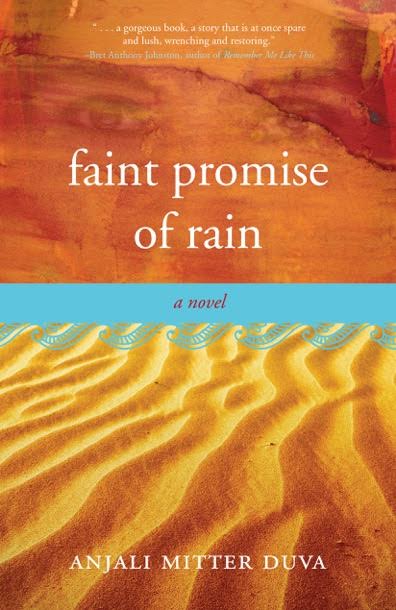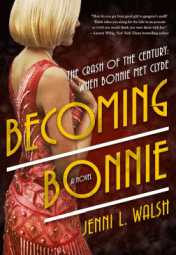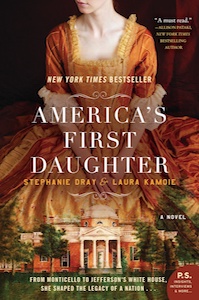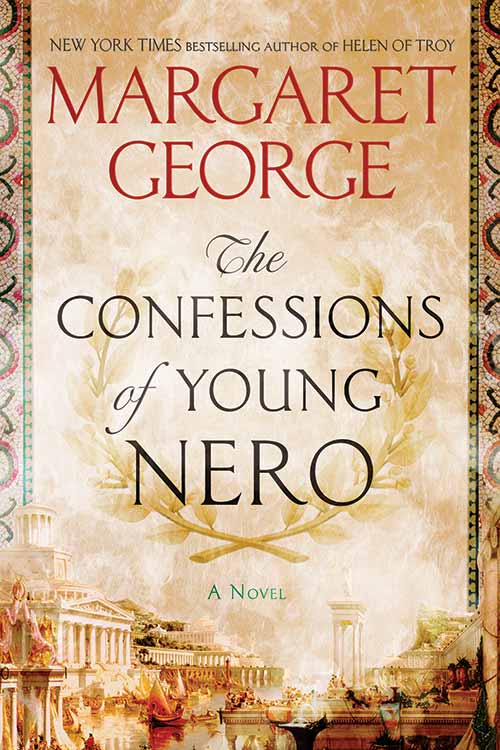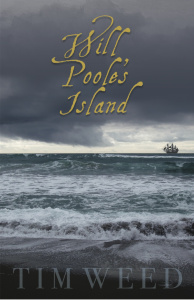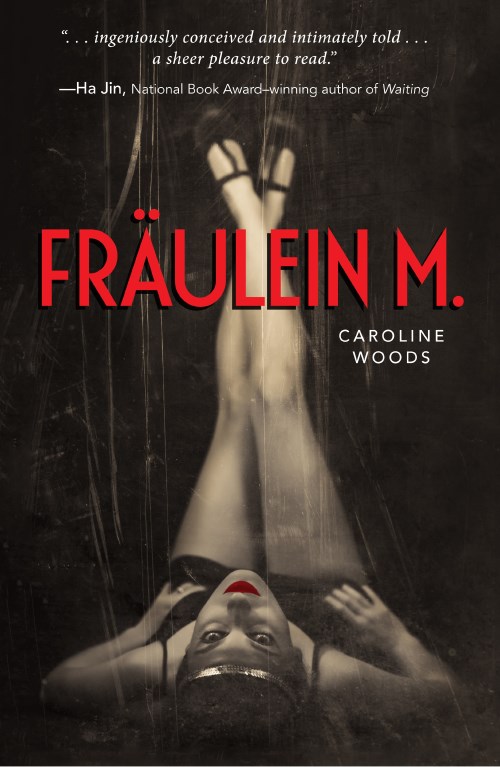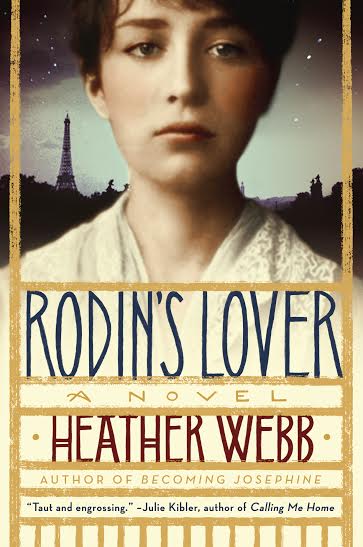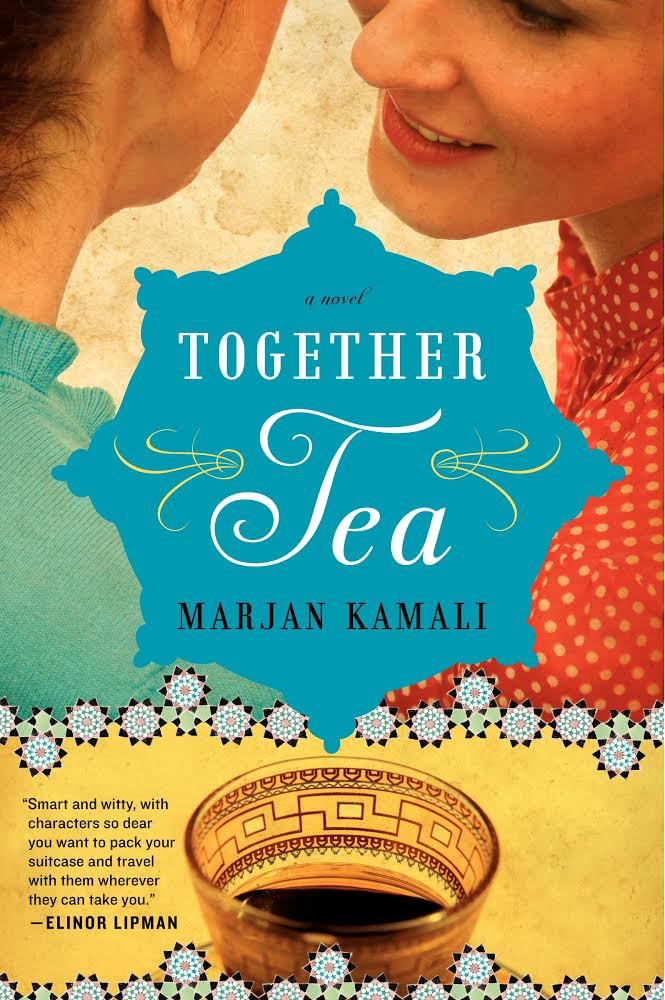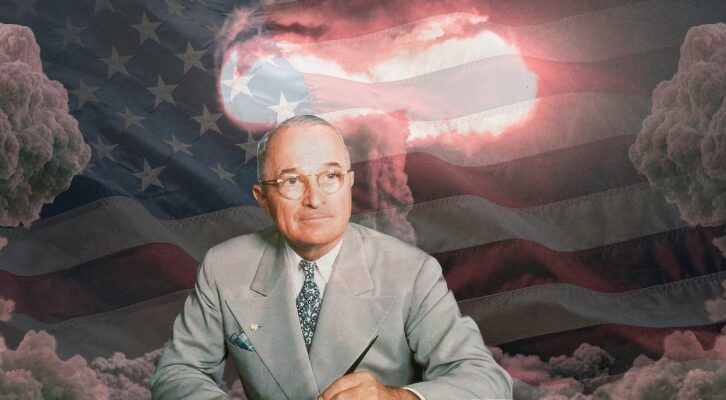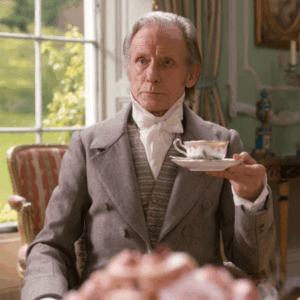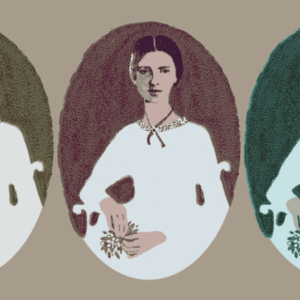
Historical Fiction is More Important Than Ever: 10 Writers Weigh In
Sometimes, the Best Way to Learn the Mistakes of the Past is to Feel Them
Famous essayist and diarist Anaïs Nin used to say, “We write to taste life twice, in the moment and in retrospect.” Nowhere is that more true than in historical fiction, which allows readers to step inside the minds of those who have shaped the world we live in, and to imagine the all-too human side of history.
Earlier this year, when the New York Times basically reported that the new president doesn’t read books, it reenergized the conversation about reading and empathy, leading many to wonder if contemporary politics would be a little more humane if more top politicians read books.
My forthcoming novel, Feast of Sorrow, is set in first-century Rome, during the time of dictators Augustus and Tiberius Caesar. Though the political parallels between now and then are many, what really stands out to me is the human connection to food and money, an idea I try to explore through the character Apicius, a gourmand who flaunts his wealth through food. He throws lavish parties and searches the world for choice ingredients. He dines well, but he does so because he can afford to. He can afford to bring snow out of the mountains to keep his food cold. He can afford to buy precious herbs and spices for his food. And he has hundreds of slaves to farm his food, and kitchens full of workers to prepare the food for him and his guests. He is utterly dependent on that structure for his sustenance and his pleasure and takes it for granted.
Today, I read about new measures that might result in thousands of deportations and fractured families. Or a costly wall between the US and Mexico. Less talked about is the impact such orders would have on the cost of food if sanctions are put in place on commodities like avocados and sugar, or if the workforce in farms and factories is reduced, or replaced with more expensive laborers. In turn, it will become harder for our nation’s poor to afford healthy food for their families. Good, nutritious food will become even more of a luxury enjoyed by the wealthy.
A familiarity with history helps me understand and make these connections. Learning about the past through the stories of others has opened my eyes to the consequences of actions that I do not want to see repeated in the world in which I live. It has shaped my ability to empathize with cultures and people that are foreign to my own experience. Reading historical fiction has colored my decisions and changed my actions—I truly believe it has made me a better person.
I asked nine other authors what they thought about the importance of historical fiction and why reading historical books is more crucial now than ever before.
Jenna Blum, Those Who Save Us (Harcourt, 2004)
Historical fiction reflects the mistakes and triumphs of those who have come before us, showing how events affected people by personalizing them, making them resonant and emotional, in individual stories. Often, it’s a Greek chorus of warning—if only we’re paying attention.
In my first novel Those Who Save Us, I drew upon ten years’ worth of research and the interviews I did with Holocaust survivors for the Steven Spielberg Survivors of the Shoah Visual History Foundation to portray and explore why and how “good” Germans—ordinary people, like you and me—allowed the Holocaust to happen; in my novella “The Lucky One,” for the anthology Grand Central, I used an actual survivor’s story to show the long-lasting emotional effects of such an evil regime. The parallels between pre-Nazi Germany and Trump’s America are striking and terrifying, and we must not ignore them. We must act every day to ensure they don’t happen again. The Resistance in Those Who Save Us will, I hope, inspire the resistance in our country today.
Anjali Mitter Duva, Faint Promise of Rain (She Writes Press, 2014)
I have been running a book club for children for four years now, beginning with a gaggle of third graders who are all now in seventh grade. Among the many books we’ve read have been several historical novels: One Crazy Summer (set in 1968 Oakland), Esperanza Rising (Mexico and California during the Great Depression), Moon Over Manifest (1930s Kansas), Chains (Revolutionary War) among others. An unintended benefit of having read so much historical fiction with these kids is that this repository of stories has been the basis for some very insightful discussions about current events. These 13-year-olds have viewed the struggles, challenges, losses, victories of a wide variety of characters in many settings, and go back to these, without my prompting, to help them understand the world they currently live in: the Black Lives Matter movement, the role of immigrant labor in America, and much more.
My own historical novel, Faint Promise of Rain, is set in the world of Hindu temple dancers in the 16th century, just at the start of Muslim rule in what was to become India. Although I wouldn’t say that this is what the book is “about,” it does explore an early manifestation of the double standard with which women in some segments of Indian society are treated—on the one hand revered as Mother and giver of life while on the other also victims of abuse with few rights. The father figure in the story is, in essence, a perpetrator of a tradition that encompasses both these facets, yet he is a very human character who can even elicit pity if not sympathy in the reader. To feel an emotional connection to him is not to condone his behavior or choices, but to interpret them with a new layer of recognition and understanding.
Jenni L. Walsh, Becoming Bonnie (May 9, 2017, Tor)
Historical fiction, which often borrows actual moments in time related to shifting economic and societal issues, has an uncanny way of resonating with relevance even a hundred, or hundreds, of years later. Becoming Bonnie is set during the Roaring Twenties, years that may’ve been roaring for the upper echelon, but not for those at the bottom. The 1920s are also a period when women took strides forward, able to vote for the first time and, like my main character, eager to make a name for themselves. One of the beauties of historical fiction is how the genre can acts as a barometer of how far we’ve come as a society. But historical fiction also shines light on how much further we have to go.
Stephanie Dray, America’s First Daughter (with co-author Laura Kamoie, Harper Collins, 2016)
I write novels set in Augustan Rome and Revolutionary America. Or, as I like to say, I write books about the rise and fall of republics. Both of which seem startlingly relevant today. History can be useful to study in terms of both perspective on our current political challenges, and solutions to them as well—certainly, the Founding Fathers retreated, again and again to dusty history books about the ancients to find examples of arrangements other than monarchy that could help men govern themselves.
But historical fiction novels are not only a better read, but might be more helpful in making sense of the current world. Historical novels don’t just tell us what happened; they make us feel. They create empathy for what other people went through in different times, in a way that is divorced from our own political baggage. The life of Cleopatra’s daughter—the heroine of my Nile series—is a stark reminder of how fortune can turn even when the world is in chaos, so long as you have purpose and perseverance. And of course, reading about the life of Patsy Jefferson Randolph, the heroine of America’s First Daughter, helps us to understand that we all have a part to play in a democracy. That even small acts can change the world.
Margaret George, The Confessions of Young Nero (Berkley, 2017)
In order to understand our own situation, we need to see our times in context, otherwise we assume that people always acted and thought as we do. Historical novels can transport us to another era, say, Jane Austen’s, when a woman’s whole economic survival depended on who she married, and even if she married. We can better see what progress has been made in women’s equality when we see where we’re coming from. Fiction can make this much more personal and real than straight history. You can apply this to any subject—war, medicine, slavery, politics, sex—and there’s a historical novel to show you how it used to be, making our assessment of what’s happening now more knowledgeable.
Historical fiction also delivers facts in a manner that people find easier to grasp than in a history book, so it can reach a bigger audience and have a greater impact. The musical Hamilton reached more people than the biography by Ron Chernow. This fueled a popular movement—dare I say mania?—and he was kept on the $10 bill because of it.
Tim Weed, Will Poole’s Island (namelos, 2014)
As a reader of historical fiction, I’m looking for something bigger than a simple reconstruction of history. I’m looking to experience a new world, to enter a new and de-familiarized version of the past. I’m looking for an immersive story that brings interesting characters to life while simultaneously capturing something essential, not only about the historical setting, but also about the deeper truths of human existence. The fact is that any contemporary historical novel must to some extent reflect contemporary values and preoccupations, and setting a book in the distant past can give us a uniquely clear-eyed perspective on the present.
It’s my hope that readers of Will Poole’s Island will come to understand a little more about the true circumstances of America’s 17th-century origins, and how those circumstances differ from our widely accepted foundational mythology. Acknowledging the tragic past is an essential first step in coming to terms with it. Self-awareness may be painful, but in the final analysis it will make us stronger.
Caroline Wood, Fräulein M. (Tyrus Books, 2017)
I often turn to E.L. Doctorow when examining why historical fiction matters. “The historian will tell you what happened,” he wrote. “The novelist will tell you what it felt like.” It’s one thing to read that on July 31, 1932, the Nazis became the largest party in the German Reichstag. It’s another to, via fiction, share a cafe table with a group of Berlin liberals just before the results of the election are announced, and watch them toast what they assume will be the Nazis’ loss. A prickle of unease lifts the hairs on the protagonist’s neck. She feels, perhaps, the way many of us did on November 8, 2016.
Historical fiction has the power to make connections between the past and present in ways that facts and dates sometimes obscure. It brings people out of history and sets them beside you at the table—whispering, laughing, fearful. And it can lead its readers in pursuit of the historical record. Crystal King’s Feast of Sorrow sent me to Apicius’s ancient cookbook, and on to Mary Beard’s SPQR: A History of Ancient Rome. I hope my book leads readers to Christopher Isherwood, Erika Mann, Trudi Kanter. We must inform our current actions with history’s guidance. It is impossible to cry “fake news” about history.
Heather Webb, Rodin’s Lover (Plume, 2015)
History isn’t just a series of bygone eras, littered with a mélange of fascinating and horrific events and people. It’s a detailed map of who we are and what we stand for both as an individual, and as a society. History is also a window into our future. As creatures of habit, we live our lives in a series of patterns and movements. Studying these patterns can be useful in predicting what comes next, how we should prepare ourselves, or even what we should speak out against in a meaningful way. In order to do these “studies” or reach this higher level of understanding, we need a vehicle beyond textbooks and documentaries and the ruins of old monuments. We need a way to relate to those of the past, in the most human way possible. This is done through stories. It’s how we make sense of our lives and emotions. Historical fiction serves as that vehicle for story. It’s filled with characters that touch our hearts as well as challenges us to look deeply at our patterns—to see how we’ve evolved—or haven’t. So you see, historical fiction is always relevant. It draws parallels from the past to our present, and teaches us to be empathetic toward others. Finally, it demonstrates that though human nature doesn’t change, how we govern ourselves and treat others can.
Marjan Kamali, Together Tea (Ecco, 2013)
“There is nothing new in the world except the history you do not know.” This quote from Harry S. Truman is the epigraph of my second novel. For me it captures why historical fiction is more important now than ever. So much of geopolitics that stuns, shocks, infuriates and confuses us can be better understood by walking in the shoes of characters who’ve experienced similar events in the past. Fiction gives us that intense, visceral experience where we can truly identify with people from another time and country.
The lives of the characters of my first novel, Together Tea, are reshaped and upended by the 1979 Iranian revolution. Readers tell me that by experiencing the joys and losses of these Iranian immigrants and their adjustment to life in America, they gain a better understanding of what is happening not just in their own world at large but in their personal lives and in their hearts. For my second novel, I researched the political divisions in 1953 Iran right before the coup. I was surprised how long-ago events in a faraway land are so similar to divisions in contemporary America. There is the same sense of one side being completely convinced they are right and dismissing and demonizing the other side. There is the same bleeding of politics into personal lives, of families becoming obsessed and divided by their political views, of irreparable chasms creating long-lasting damage. Now more than ever we need historical fiction to not just increase our empathy for those who lived in trying times before us but to recognize just how much the past feeds our present and how political themes and regimes have an eternal recurrence.
Crystal King
Crystal King is a novelist, editor, professor, social media professional, and critical and creative thinker. Feast of Sorrows is her first novel.









